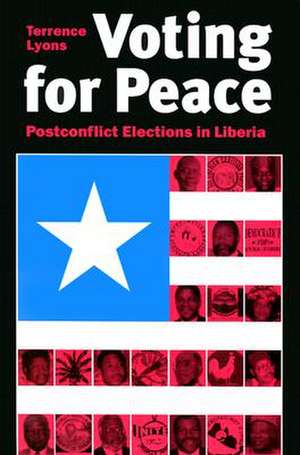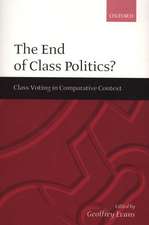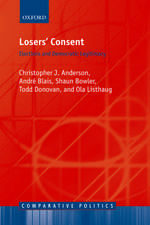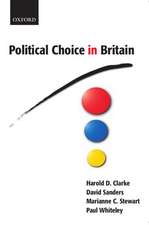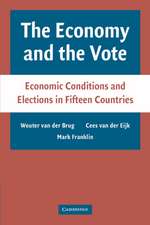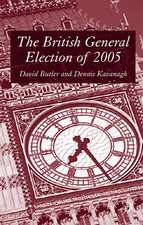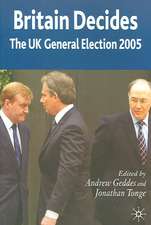Voting for Peace: Postconflict Elections in Liberia
Autor Terrence Lyonsen Limba Engleză Paperback – dec 1998
Elections have been used as a mechanism to institutionalize a new political order following internal conflict in Cambodia, El Salvador, Angola, Mozambique, Bosnia, and now Liberia. This book analyzes the Liberian transition and the July 1997 elections in order to better understand the relationship between war termination and transitions to democracy and the role post-conflict elections play in promoting both of these goals. The Liberian elections represented the final stage of a seven-year, West African-led peace process. An overwhelming majority voted for former factional leader Charles Taylor in the belief that if Taylor did not win, war would erupt again. The Liberian transition demonstrates that post-conflict elections may play an important role in a process of war termination. In many cases, it may be necessary to move forward with war termination and "imperfect" elections in the short run and pursue goals relating to democratization after the new government has been put in place. This study uses a detailed examination of the difficult Liberian case to highlight the more general challenges of helping countries make the transition from civil conflict and authoritarian rule to peace and democracy. Studies in Foreign Policy
Preț: 155.46 lei
Nou
Puncte Express: 233
Preț estimativ în valută:
29.75€ • 31.14$ • 24.61£
29.75€ • 31.14$ • 24.61£
Carte tipărită la comandă
Livrare economică 07-21 aprilie
Preluare comenzi: 021 569.72.76
Specificații
ISBN-13: 9780815753537
ISBN-10: 0815753535
Pagini: 100
Ilustrații: map
Dimensiuni: 152 x 229 x 7 mm
Greutate: 0.19 kg
Ediția:New.
Editura: Brookings Institution Press
Colecția Brookings Institution Press
ISBN-10: 0815753535
Pagini: 100
Ilustrații: map
Dimensiuni: 152 x 229 x 7 mm
Greutate: 0.19 kg
Ediția:New.
Editura: Brookings Institution Press
Colecția Brookings Institution Press
Notă biografică
Terrence Lyons is an associate professor of conflict resolution at the Institute for Conflict Analysis and Resolution and interim director of the Center for Global Studies at George Mason University.This report is sponsored by the Council's Center for Preventive Action.
Descriere
Elections have been used as a mechanism to institutionalize a new political order following internal conflict in Cambodia, El Salvador, Angola, Mozambique, Bosnia, and now Liberia. This book analyzes the Liberian transition and the July 1997 elections in order to better understand the relationship between war termination and transitions to democracy and the role post-conflict elections play in promoting both of these goals. The Liberian elections represented the final stage of a seven-year, West African-led peace process. An overwhelming majority voted for former factional leader Charles Taylor in the belief that if Taylor did not win, war would erupt again. The Liberian transition demonstrates that post-conflict elections may play an important role in a process of war termination. In many cases, it may be necessary to move forward with war termination and "imperfect" elections in the short run and pursue goals relating to democratization after the new government has been put in place. This study uses a detailed examination of the difficult Liberian case to highlight the more general challenges of helping countries make the transition from civil conflict and authoritarian rule to peace and democracy. Studies in Foreign Policy
